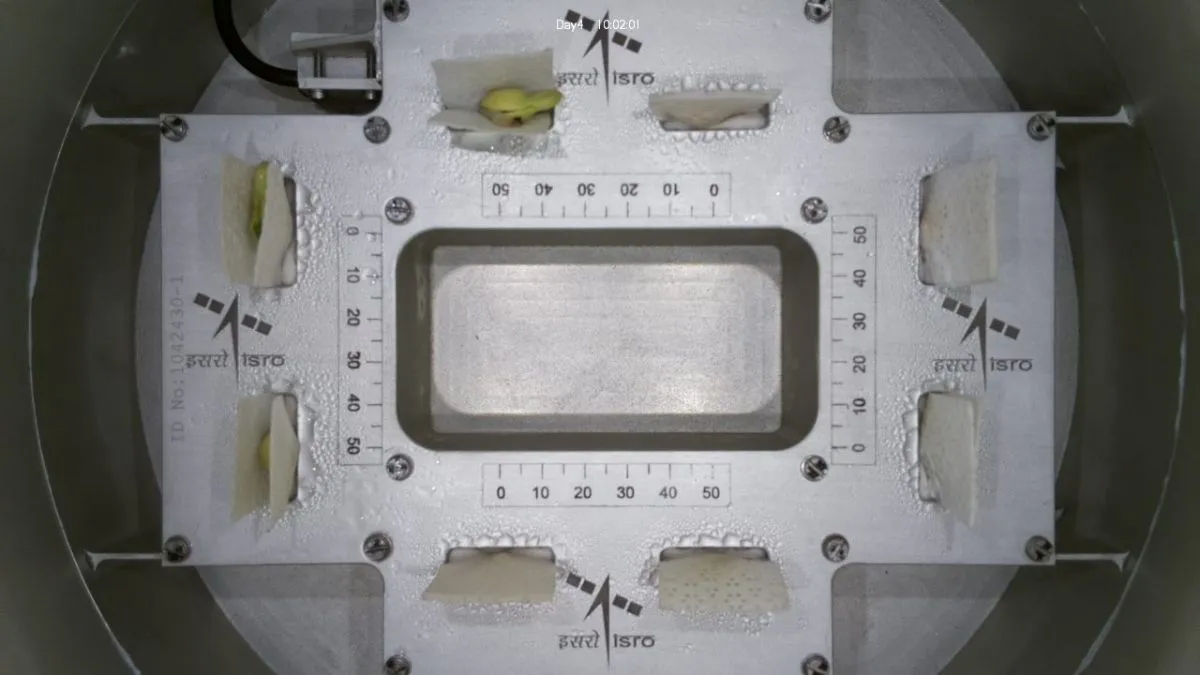- By Priyanka Koul
- Sat, 04 Jan 2025 05:42 PM (IST)
- Source:JND
In a groundbreaking achievement, ISRO has successfully germinated cowpea seeds in space, marking a significant step in space research. The seeds, which were sent into space aboard the PSLV C-60 rocket on December 30, are expected to sprout leaves in the coming days.
This experiment is part of the VSSC's CROPS (Compact Research Module for Orbital Plant Studies) initiative, which aims to explore how plants can be grown in space. This could provide valuable insights for long-term space missions, helping to sustain life on future missions.
ISRO shared the exciting news on social media platform X, writing, “The beginning of life in space! The CROPS experiment was successfully conducted on PSLV-C60 POEM-4, and germination occurred in just four days. We expect leaves to emerge soon.”
Life sprouts in space! 🌱 VSSC's CROPS (Compact Research Module for Orbital Plant Studies) experiment onboard PSLV-C60 POEM-4 successfully sprouted cowpea seeds in 4 days. Leaves expected soon. #ISRO #BiologyInSpace pic.twitter.com/QG7LU7LcRR
— ISRO (@isro) January 4, 2025
What is the SpaDeX Mission?
As part of the SpaDeX mission, ISRO launched two small satellites weighing a total of 229 tons using the PSLV rocket. These satellites will carry out docking and undocking at an altitude of 470 kilometers. The mission’s success will support India’s ambitious space goals, including Chandrayaan-4, an Indian space station, and the historic landing of an Indian astronaut on the Moon.
Also Read: Bengaluru Weather: Extreme Cold Wave Hits City, Temperature Drops To 10.2°C; Heavy Fog Expected
